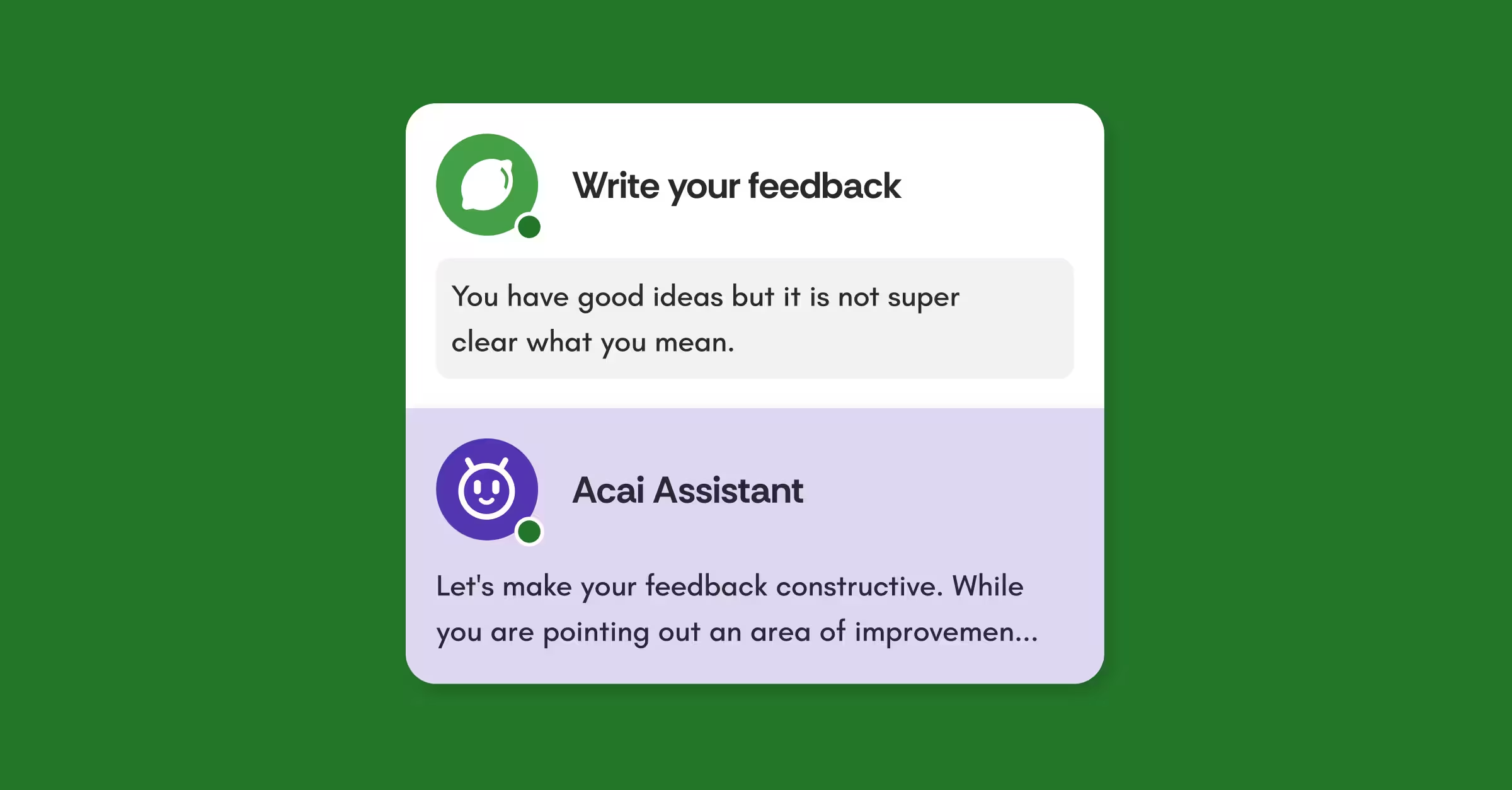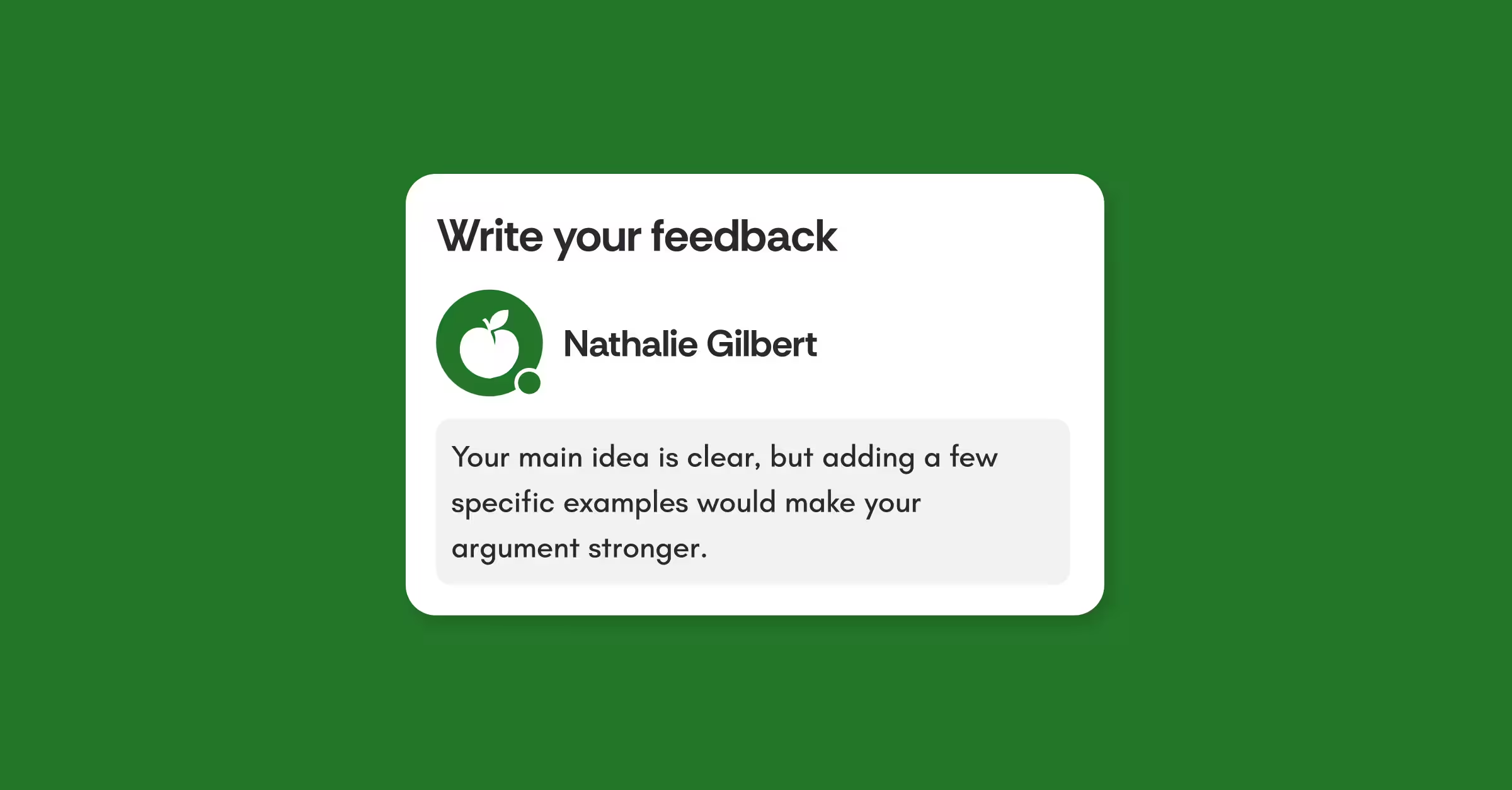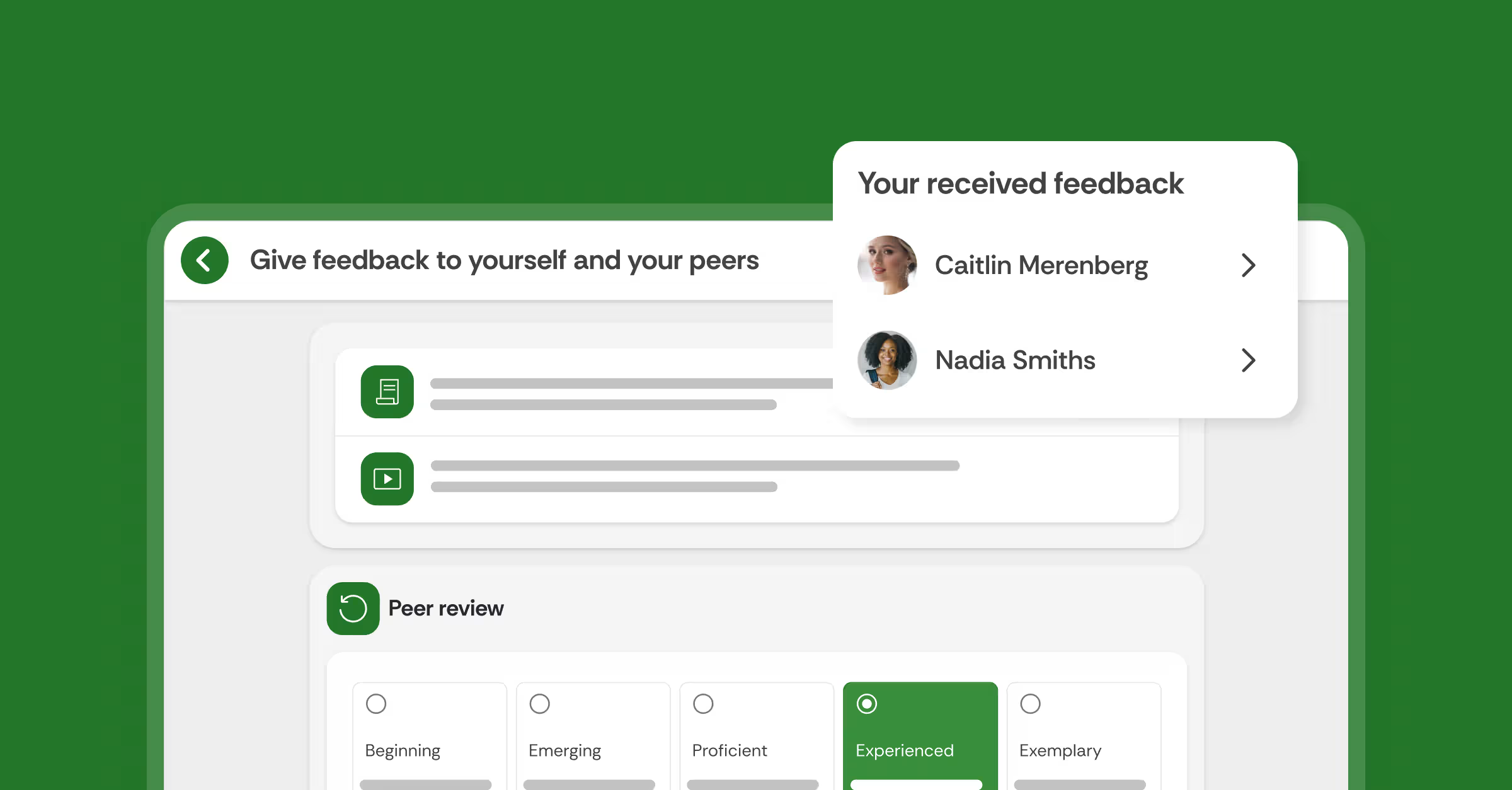Teaching with AI: How FeedbackFruits helps educators build AI Literacy and confidence
As AI becomes part of everyday learning, educators face a new challenge: not whether to use it, but how to teach it well. FeedbackFruits AI Practice helps turn hesitation into AI fluency.

AI Fluency: Helping educators and students think with AI
When tools like ChatGPT first appeared, many in higher education didn’t know what to think. Some saw new opportunities for creativity and exploration; others worried about academic integrity and fairness.
More than two years later, AI has become part of everyday learning. Students use it to brainstorm ideas, summarize readings, and improve their writing.
Yet for many educators, one question remains: How can we help students use AI responsibly and thoughtfully?
That’s the question we explore in our new whitepaper, Empowering Responsible AI Use in Education, and the one that inspired our newest learning activity: AI Practice.
From reaction to reflection
When AI first entered the classroom, many institutions responded by trying to contain it. Detection tools and policy restrictions seemed like the safest route.
But these approaches didn’t address what really matters: teaching students how to think with AI, not just through it.
According to Inside Higher Ed (2024), 89% of instructors say their students already use AI tools, yet only 20% say their institution provides clear guidance. Without structure, AI use happens out of sight, leaving both learning outcomes and academic integrity uncertain.
That’s why the conversation has shifted from banning AI to building AI literacy, helping students develop the ability to understand, evaluate, and apply AI ethically in their studies.
Even UNESCO’s Guidance for Generative AI in Education and Research echoes this shift, calling for critical and ethical engagement rather than restriction.
Teaching AI Literacy in practice
At FeedbackFruits, we believe the best way to prepare students for an AI-driven world is through guided, reflective learning.
That’s why we created AI Practice: a structured learning activity that brings AI use into the open and turns it into a teachable process.
Within one workflow, students:
- Interact with AI through instructor-designed prompts
- Reflect on and evaluate the AI’s responses
- Engage in peer dialogue around their findings
- Receive educator feedback supported by built-in analytics
AI Practice integrates seamlessly with any Learning Management System (LMS). including Canvas LMS, Moodle, Blackboard Learn or D2L Brightspace.
It’s part of our Learning Design System, a modular platform that connects pedagogy and technology for scalable, engaging course design. It connects naturally with other FeedbackFruits activities to deepen AI engagement and reflection:
- AI Practice + Peer Review – Compare and evaluate different prompt strategies collaboratively.
- AI Practice + Assignment Review – Reflect on AI-assisted drafts versus final submissions.
Together, these tools support authentic assessment, collaboration, and feedback-rich learning environments that make AI literacy part of the learning process.
Insights from our new whitepaper
Our latest publication, Empowering Responsible AI Use in Education, shares insights from global research and institutional experiences.
It explores:
- How AI literacy connects to ethical and authentic assessment
- The challenges of invisible AI use in higher education
- Practical strategies for integrating AI into teaching and learning
For example, the EDUCAUSE 2025 Horizon Report: Teaching and Learning Edition highlights that generative AI will fundamentally reshape teaching, learning, and assessment, a message that underpins our work with partners worldwide. Meanwhile, Turnitin’s 2025 AI in Education Survey found that 62% of educators feel “blind” to AI use, emphasizing the urgent need for guided, transparent activities like AI Practice.
👉 Download the whitepaper to explore evidence-based frameworks for responsible AI integration.
A new approach to teaching with AI
AI isn’t replacing educators, it’s redefining what meaningful learning looks like.
By combining structure, reflection, and collaboration, AI Practice helps students use AI as a tool for deeper thinking, not just faster completion.
For educators, it offers visibility and confidence.
For students, it builds essential skills for academic and professional life.
And for institutions, it provides a responsible, scalable way to embed AI literacy across disciplines.
Ready to see it in action?
💬 Book a demo with us to explore how AI Practice can enhance your learning design, assessment, and engagement strategies across your LMS.
Building a culture of responsible AI use
For over a decade, FeedbackFruits has helped educators create authentic, feedback-rich, and collaborative learning experiences.
With AI Practice, we continue that mission, helping institutions move from uncertainty about AI to purposeful, ethical integration.
At the heart of this transformation is AI literacy, the ability to understand, evaluate, and use AI tools responsibly in academic contexts. Building AI literacy goes beyond knowing how to prompt AI tools; it’s about fostering critical awareness, reflection, and ethical engagement with AI’s role in education.
That’s where AI Practice makes a difference. Through guided prompts, reflection activities, and educator feedback workflows, students learn to critically engage with AI outputs while developing responsible, ethical use habits. This process helps students move from simply using AI to truly thinking with it, applying AI as a tool for inquiry, creativity, and deeper learning.
By combining sound pedagogy, structured design, and technology integration, FeedbackFruits enables institutions to cultivate a culture where AI is not feared or hidden but openly discussed and thoughtfully applied.
This is how educators and students together can truly move from fear to fluency.
















![[New] Competency-Based Assessment](https://no-cache.hubspot.com/cta/default/3782716/interactive-146849337207.png)










